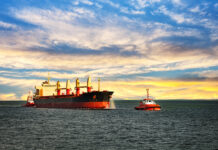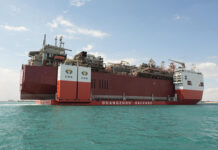
Disruption is key element facing PSA International and the global economy over the next year, following what the company says was a challenging year in 2019 that saw revenues drop, but also saw profits rise.
Expectations for 2020 are that the coronavirus and other headwinds will make this a far tougher proposition with the geo-political challenges offering little comfort for global trade in a world that has become integrated with regional dependencies creating disruption that ripples around the globe.
“As we head into 2020, disruption, digitalisation and decarbonisation continue to feature prominently as forces for change and collaboration, but with the potential to unleash unknown repercussions,” Tan Chong Meng, Group CEO, PSA International said.
Another PSA executive, group chairman Peter Voser, added, “Trade protectionism and socio-political unrest,” characterised 2019, adding that as the global economy has slowed “its resilience began to wane as strained relationships between major trading nations exacerbated into open tariff wars.”
Shipping, said Voser, has grappled with increasing costs, major strategic decisions and tactical manoeuvres necessary to comply with the International Maritime Organisation 2020 global sulphur regulations.
Even in the face of these continued difficulties PSA has manged to turn a decline in revenues, from US$4.086 billion in 2018 to US$4.077 last year, into an increase in net profits from US$ 1.250 billion to US$1.265 billion.
The company said, group revenues fell 0.2% “partly due to de-consolidation of a subsidiary. On a like-for-like basis, revenue would have increased 3.5%. Profit from operations grew by 1.6% from the previous year, while overall net profit for the year was 3.4% higher.”
As staff and other costs have increased the turnaround also appears to have occurred as a result of ‘other income’, which is mainly investment income and profits from joint ventures, which increased by nearly US$80 million, and a substantial US$31 million decrease in taxes, while there was also a substantial US$70 million decrease in operating costs.
In the face of mounting challenges in 2020 PSA is looking to technology to find a way through the global economic strife.
“Our vision is to combine our physical capabilities globally with our growing expertise in cargo solutions and connecting supply chain communities, to realise a fully operational Internet of Logistics (IoL),” said Tan Chong Meng.
The world is a connected place and for PSA the way forward is make sure that the supply chain community is connected further.
- PSA International Pte Ltd (PSA) handled 85.20 million TEU for the year ended 31 December 2019, representing an increase of 5.2% from the previous year.
- PSA Singapore contributed 36.89 million TEU, increasing 1.6% over 2018. PSA terminals outside Singapore delivered a total throughput of 48.32 million TEUs, increasing 8.1% over 2018.
Nick Savvides
Managing Editor





